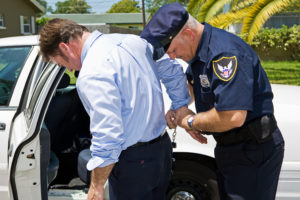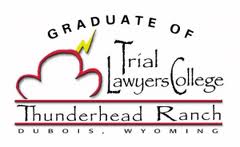What are my rights when the police want to speak to me?
 A police officer may approach any person on the street and ask him questions. The officer does not need evidence you have done anything illegal. You have the right not to answer his questions, and you also have the right to walk away from him. You should ask him, “Am I free to leave?” If he answers “yes,” you know that you are not under arrest and may walk away. Walk away. Do not run because running from the officer could be seen as guilty conduct. If you walk away, the officer may still follow you or even stop you. If he follows you, understand that you are not under arrest. If he then stops you, consider yourself under arrest.
A police officer may approach any person on the street and ask him questions. The officer does not need evidence you have done anything illegal. You have the right not to answer his questions, and you also have the right to walk away from him. You should ask him, “Am I free to leave?” If he answers “yes,” you know that you are not under arrest and may walk away. Walk away. Do not run because running from the officer could be seen as guilty conduct. If you walk away, the officer may still follow you or even stop you. If he follows you, understand that you are not under arrest. If he then stops you, consider yourself under arrest.
If the police ask to talk with you about an investigation, it is always a good idea to talk with a lawyer first. If you decide to speak to the police, what you say may be used against you if you are charged with a crime or delinquency. The police are highly trained in questioning people suspected of breaking the law. You are not going to outsmart or outwit them. This is not a game. It is serious business. What you tell the police could get you arrested and cause lifelong problems. Therefore, ask for a lawyer before talking to the police.
When can the police stop me? What are my rights?
The police may stop you if they have a valid reason to suspect you broke the law. If an officer tells you to stop moving, you should stop moving. Technically, such a stop is not an arrest, but the officer can “frisk” you (that is, he can do a pat down search of your clothing) if he reasonably believes you may have a weapon. Even so, you still have rights when stopped in this way. If the officer questions you or asks to search your bags or clothes, you can refuse, but always be respectful when you are asserting your legal rights.
What are Miranda rights? When do I have them?
Whether at the police station or on the street, everyone has Miranda rights when (1) a person is in police custody, and (2) the police are going to ask the person questions. If the police just approach you on the street and ask you a question, you are not in custody and do not have Miranda rights. If you are under arrest, you are absolutely in custody and have Miranda rights, but again only if the police want to ask you questions. The issue of custody sometimes can be a little hazy if the situation falls somewhere between merely a question and an arrest. If you are in custody and the police are going question you, then the officer must read you your Miranda warnings (tell you what your Miranda rights are) before they begin asking you questions.
Can you explain what these Miranda rights really mean?
The two essential Miranda rights are
- the right to remain silent, and
- the right to have an attorney be present and advise you when being questioned by the police.
Before he asks you questions, the officer must tell you these rights. He should also tell you that anything you say to him can be used against you when your case goes to court, and if you cannot afford to hire a lawyer, one will be appointed to represent you (the judge will arrange for a lawyer to represent you).
The right to remain silent means the officer cannot make you answer his questions at all about the accusations against you. If you decide to answer questions after the officer has told you your rights, then anything you say can be used as evidence against you in court. If you decide to start answering questions, you still have the right to remain silent and can stop answering any questions at any time. You also have the right to have a lawyer be present and advise you during questioning. You have this right even if you and your family cannot afford to hire a lawyer. If you tell the officer you want a lawyer with you during questioning, he will have to stop questioning you until the court can arrange for a lawyer to represent you. If you begin answering questions and then change your mind, you can still ask for a lawyer, and the officer has to stop asking you questions until you get a lawyer, but everything you said before you asked for a lawyer can be used as evidence against you in court.
What if the officer does not read me my Miranda rights?
If the officers does not ask question you, he does not have to “Mirandize” you (tell you your Miranda rights). If you are not in custody when he questions you, he also does not have to read you your Miranda rights. The Miranda rule means that if you are in custody then the police must read you your rights before they interrogate you. “Interrogate” means to ask questions or otherwise say something designed to get a response from someone. Therefore, if the police are not going to question you, they do not have to give you your Miranda warnings.
If you are in custody but say things on your own without the police doing or saying anything, what you say can be used as evidence against you in court. But if you are in custody and the police do not read you your rights before they interrogate you, then anything you say in response to the interrogation by the police cannot be used to prove your guilt at a trial. The fact that the officer did not read you your Miranda rights does not mean that you cannot be found guilty by the court. It just means that any statements you made to the police while in custody in response to their interrogation cannot be used against you. If you say something to the officer when he did not ask you a question, your statement can be used against you even if the officer did not read you your rights. Even if the officer does not read you your rights, your statements to him could still be used against you at trial if you testify at trial and tell the court something different from what you told the officer.
What if I am not under arrest and the officer asks me questions?
As explained above, you always have the right to refuse to answer the questions of a police officer. An officer must read you your rights only when you are in what is called “custody”. The police do not need to read you your rights if you are not in custody. Often, an officer will contact someone to speak with him. Maybe the officer thinks the person is a witness. Maybe he believes the person is a suspect but cannot prove it. If the person decides to talk to the officer, what he says could be used against him if he is ever charged with a crime. If the police want to talk with you about an investigation, it is a good idea to talk with a lawyer first.
What if the officer didn’t read me my rights when I was arrested? Shouldn’t the charges be dropped?
No. In order to arrest you, the police do not have to read you your rights. An officer only has to read you your rights if (1) he is taking you into custody, and (2) he is going to interrogate you.
Contact James Sullivan to consult with an experienced Houston Criminal Lawyer at (281) 546-6428.

